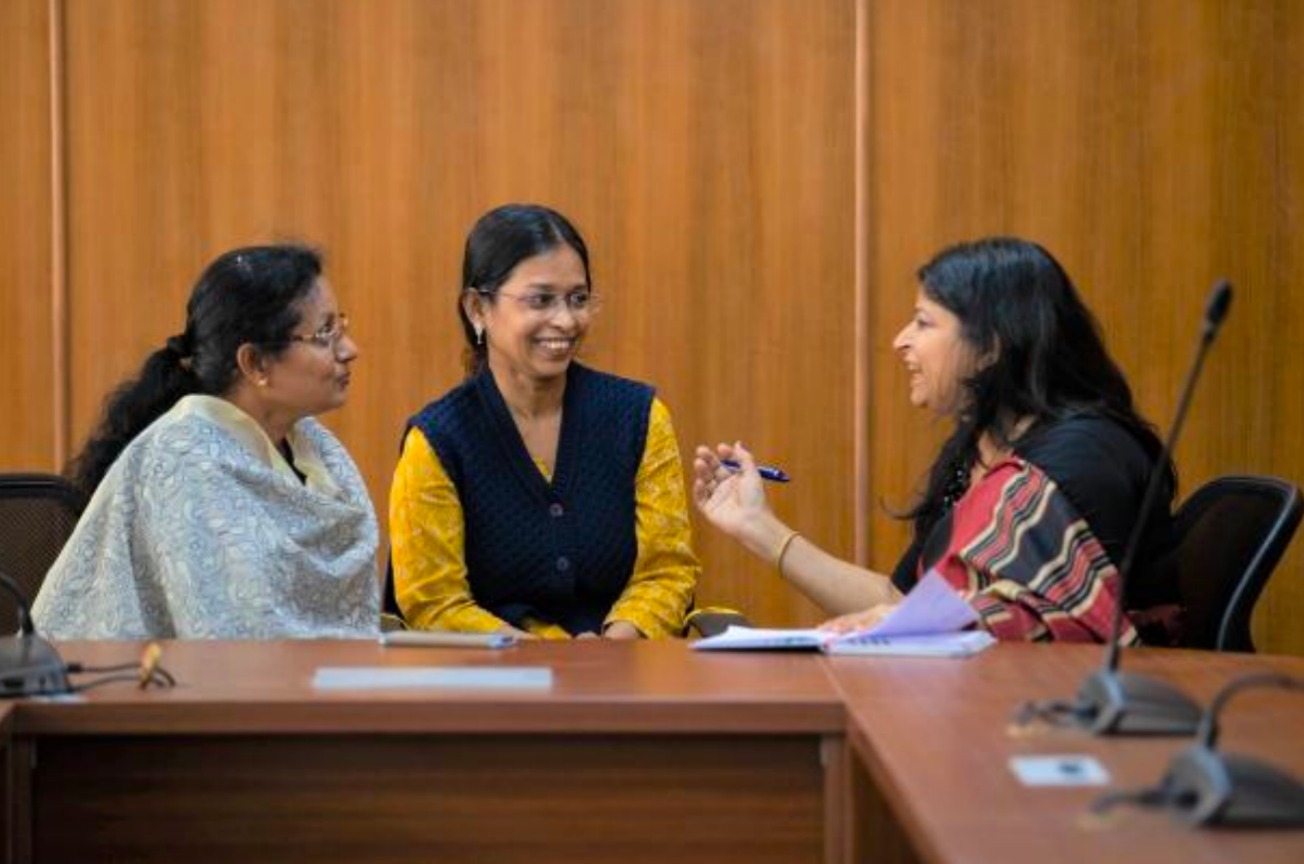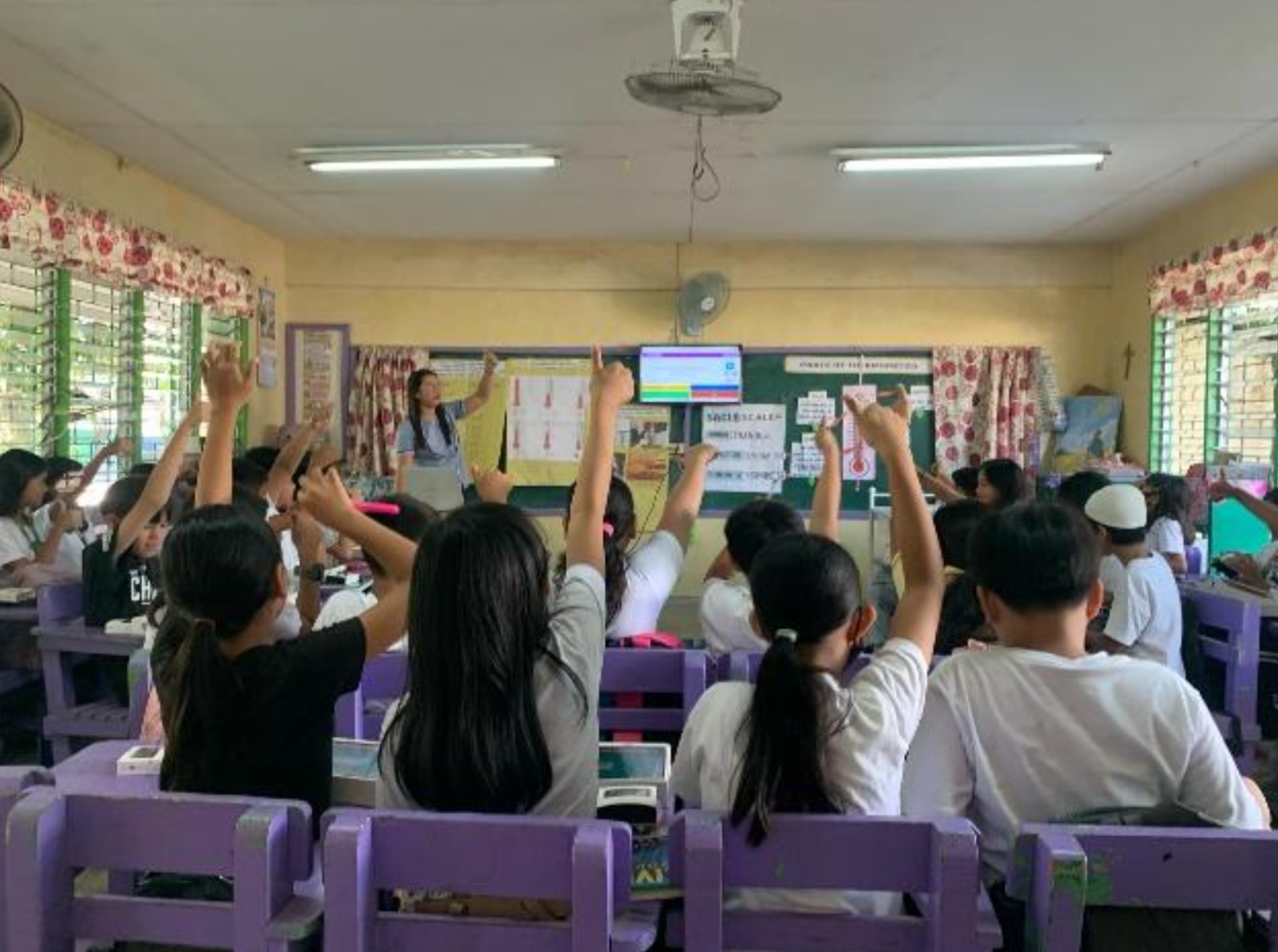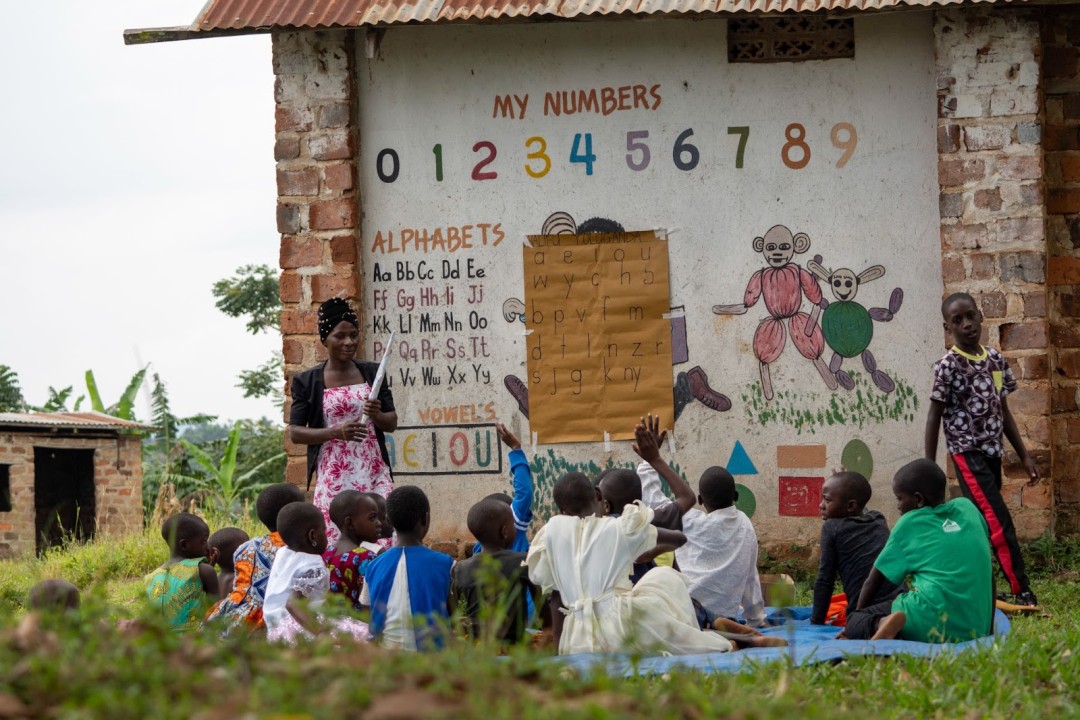The main take-away from the Education Commission’s participation in the 2017 World Bank and IMF Spring Meetings: new and actionable solutions for the financing of the Learning Generation are gaining momentum and support. The message was loud and clear, coming from ministers of finance representing several African and Asian countries, civil society, business and philanthropy leaders and international donors, all working to reform and invest in education systems around the world.
We are also a step closer to building a movement to deliver on the key financing and reform recommendations of the Commission’s Learning Generation Report. Writing on the Commission blog one year ago, we talked of “starting a financing movement” in order to meet the 2030 Sustainable Development Goal of an inclusive and quality education for all. As highlighted in the Learning Generation report launched at the United Nations in September 2016, this movement starts with countries’ own leadership and a commitment to making reforms in education system performance, along with an openness to innovation and an attention to inclusion. But there is also a real financing gap that affects low- and middle-income countries.
The Commission developed an innovative proposal for an International Finance Facility for Education (IFFEd) to multiply financing for global education. This proposal followed an extensive global consultation process involving governments, civil society organizations, youth advocates, donors, the World Bank and regional development banks. This facility offers a solution to complement and enhance existing efforts and seeks to build a more comprehensive international financing architecture for education.
Introducing the International Finance Facility for Education
Commission Chair Gordon Brown addressed UN Correspondents and presented the financial innovations underlying the Facility. He said that by 2020, the Facility could mobilize an estimated additional $10 billion annually for education in lower-middle-income countries. As Mr. Brown explained in Project Syndicate, “rather than having to borrow at interest rates of 3.5-4% to pay for teachers’ salaries, lower-middle-income countries will benefit from a new system of guarantees and low-interest or interest-free credits” when acting through IFFEd. Addressing the ECOSOC chamber later that evening, Mr. Brown stated, “Don’t tell me this cannot be done. We’ve done it before. Here is the practical proposal.”
“Not enough for a textbook, not enough for a teacher, and not nearly enough for an education.” –Gordon Brown on the critical need for #IFFEd pic.twitter.com/M7DKCrxHzU
— Education Commission (@educommission) April 19, 2017
African leaders support the Facility and commit to reforms and investments
Recounting his recent visits to 14 African countries to spearhead a movement of pioneer countries, former Tanzanian President Jakaya Kikwete in his role as Special Envoy for the Commission, said that developing countries are 70 years behind developed countries in education. He made clear, both at the Center for Global Development and at an African Minister of Finance Roundtable, that it’s possible to change this situation if countries take urgent action to reform and prioritize results – as highlighted in the Commission’s four transformations – and if governments take continued steps to increase domestic spending on education and better use resources. African ministers of finance agreed with President Kikwete’s vision. While acknowledging the importance of education for the prosperity of their countries as well as progress underway, the ministers laid out their ambitions for what their countries want to achieve, what their role is in getting there and how the international community can be of support.
The African leaders made their support for IFFEd clear. Mr. Brown also called upon the ministers to support the Global Partnership for Education’s replenishment to secure the necessary financing – a vital lifeline for the poorest countries. As World Bank Vice President Keith Hansen noted, “Money is not going to flow into education just because of the moral arguments alone.” We have to take action now.
Today at the @WorldBank, finance ministers from across #Africa joined us to discuss our Pioneer Countries Initiative https://t.co/Uj3vyTlkak pic.twitter.com/Lx7EYz0vCm
— Education Commission (@educommission) April 21, 2017
Business sector backs education reform and financing
Creating a movement for more and better investment in education also requires greater engagement from the private sector and civil society. At the Global Business Coalition for Education breakfast, leaders discussed the future of education financing and how to bring business, philanthropy, and government together to address the investment gap. Rockefeller Foundation President and former USAID Administrator Rajiv Shah led the way stating, “I don’t see how you get there without some massive new effort to mobilize resources for this purpose.” He went on to identify IFFEd as the needed breakthrough to unlock the necessary funds. World Bank Group CEO Kristalina Georgieva expressed that one of the best ways to “create opportunity rather than entrench inequality” is to turn IFFEd’s messages into action – a call for an expansion of educational opportunity.
In 2015, the @UN proposed bold #GlobalGoals. Both public and private contributions are necessary to get every child in school by 2030. #SGD4 pic.twitter.com/gODzIrE7GB
— Education Commission (@educommission) April 20, 2017
Calling for a comprehensive global financing architecture
The way in which the international community works together with developing countries is critical to ensure efficiency. At the Center for Global Development’s panel on “Financing for Learning: Making Global Education a Reality” featuring Mr. Brown alongside fellow Commissioners Julia Gillard (Global Partnership for Education Chair), Anthony Lake (UNICEF Executive Director) and former Tanzania President Jakaya Kikwete, discussions focused on how these three education financing entities would work together: the Global Partnership for Education (GPE), Education Cannot Wait fund (ECW) and the IFFEd.
Mr. Lake said that he does not believe that GPE, ECW and the IFFEd are competing for the same pieces of a shrinking pie of education funds. This was reinforced by the other panelists. These funding mechanisms were described as a “three-legged” stool addressing complementary needs. They are designed to deliver the funding necessary to help provide quality education, and they do it in different ways. While ECW deals with education in crises and emergency contexts, GPE and the IFFEd address longer-term financing needs. The large majority of GPE’s activities (some 70% of its planned grant financing for 2018-2020) will be focused on low-income countries in greatest need of grant financing. IFFEd is designed to generate additional financing for lower-middle-income countries which have the largest external financing gaps (some $23 billion by 2020) alongside high levels of inequity.
Even with increased investment from donor & developing countries, there is still a significant education funding gap. #IFFEd #FundEducation pic.twitter.com/XzRPaBMUof
— Education Commission (@educommission) April 20, 2017
The Education Cannot Wait fund also launched a new “first response window” to help respond more quickly in current emergencies and crises. The fund is already benefiting two million children with education support, and the Commission has called on donors to dedicate 4-6% of humanitarian aid to education.
What’s next?
In the coming weeks and months, the Commission will advocate to ensure IFFEd receives support of the G20 leaders, who will gather in Hamburg in July. Further, the Commission is gathering government and civil society representatives from over a dozen African countries in Nairobi, Kenya for a demonstration workshop to lay the groundwork for the education system reforms that each of the countries could undertake. And civil society organizations are also coming together to rally global support for increased education financing and outcomes.
In UNICEF Director’s Lake’s words, investing in education “is simply a common sense proposition.” Here at the Commission, we remain steadfast in our pledge to see this proposition become a reality.
Liesbet Steer and Justin W. van Fleet are the Directors of the International Commission on Financing Global Education Opportunity.



